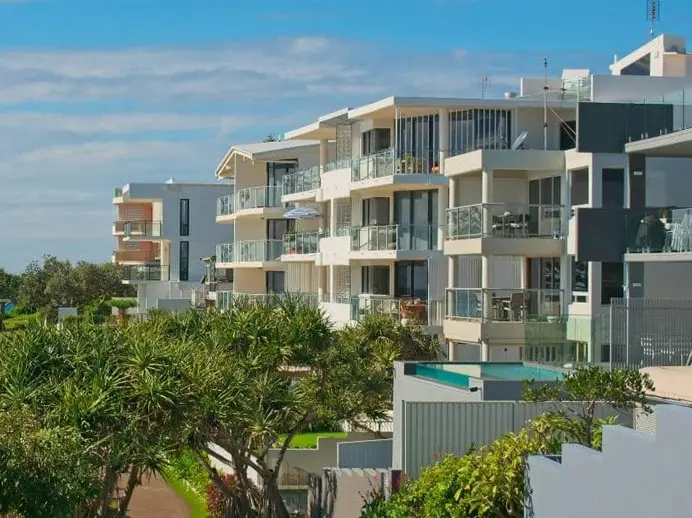17 December, 2018
Family Law, Articles
What Happens in a Property Settlement Conference?

One of the first things to become clear when you are going through separation and divorce is that there is a lot of confusing legal jargon. There are technical terms about the property, financial and even parenting matters that inevitably surface as your relationship officially ends. For example, you may have heard of a 'Conciliation Conference' but can be forgiven for not knowing exactly what that means.
Also known as a 'Property Settlement Conference', this is simply a meeting where you and your former spouse or partner have a chance to reach consensus about the distribution of your property before going to court.
Unfortunately, you cannot schedule this meeting yourselves. Instead, the Court will schedule it for you, though this will only happen if you have not resolved your differences during or following a preliminary meeting with a Registrar of the Family Court in what is called a 'Case Assessment Conference'.
Preparing for the Property Settlement Conference
If you cannot resolve your disagreement during the Case Assessment Conference, the registrar will let you know what you must do prior to the Property Settlement/Conciliation Conference.
After the Case Assessment Conference, you will usually have 28 days to exchange relevant information following the Registrar's instructions. Along with new material relevant to your case, this may also include documents that were not shared prior to the Case Assessment Conference. Here is what you will need:
- Paperwork about any financial matters referenced in your respective financial statements;
- proof of joint and individual financial contributions made when cohabitation began;
- documentation of any inheritances, gifts or compensation payments received during cohabitation;
- documentation about the purchase or sale of property in the year before or since the separation, and any increase or reduction of liabilities since separation;
- detailed documents about superannuation.
Depending on the specific nature of your dispute, you may also need to complete a financial questionnaire and balance sheet as directed.
Within this context, it is crucial that you share all the facts and documents about any aspect of your application. Failure to do so can have grave consequences, including delays, added costs or even an order mandating that you pay any costs incurred by your former partner or spouse. At its discretion, the Court may also issue a greater order for a property settlement favouring the other person.
Understanding the process
Even with the proper legal, financial, and emotional support, preparing for a Property Settlement Conference can be stressful. But knowing what to expect at the meeting can help lessen your anxiety.
One of the first questions you may have is how long the meeting will take. The answer is based on the unique circumstances of your case, but you should be prepared to spend one to two hours in conference.
The meeting format depends upon the Registrar's preferences. He or she will usually begin by speaking with each of your lawyers to confirm the specific nature of the disagreement. Based on this information and material submitted prior to the meeting, the Registrar will frame the ensuing conversation with your lawyers in a manner designed to achieve consensus. However, you should not be surprised if the Registrar also asks to speak with each of you directly.
You should be aware that in most cases, both you and your ex-partner or spouse must both attend this conference. If either you are worried about this for any reason, you should let your lawyer know so he or she can relay your concerns to the Registrar, who will make arrangements to address this issue.
You should also be aware that anything said during a Property Settlement Conference or Conciliation Conference is usually confidential. This means that you cannot refer to these conversations in any ensuing Court hearings if the matter is not resolved.
The three parts of the Property Settlement Conference
A Property Settlement or Conciliation Conference is usually a three-step process. These steps are the introduction, the settlement discussions, and the conclusion. Below is a simple description of each stage:
- Introduction: The Registrar will explain the general format for the meeting and lead a brief discussion about any points of contention. He or she will also give guidance for ensuing negotiations based on the specific circumstances of your case.
- Settlement discussions: This is when the Registrar will facilitate the actual conversation about how to resolve your disagreement(s).
- Conclusion: At the end of the meeting, the Registrar summarises everything that has happened and reviews any agreements. If all the issues have been successfully addressed, your lawyer will put the agreement(s) in writing so that the Court can issue consent orders accordingly.
What if we still do not agree?
In a perfect world, everything will settle at the Property Settlement or Conciliation Conference. If not, the only alternative is court intervention. In this case, you will have to attend a pre-hearing conference, which is usually held within six to 12 months, and a pre-trial conference.
You should be aware that you and your former partner or spouse (and your lawyers) can keep trying to reach a settlement until the final hearing. If you still have not been able to resolve the issues by that time, the Court will evaluate all relevant material and testimony. After it does so, it will issue an immediate ruling or announcement that it will issue its decision later.
If you and your partner and spouse are going through separation or divorce and cannot agree on property, financial or parenting matters, it is essential to get the proper legal advice. Contact our Gold Coast Family Lawyers today.
Our Services
Property
Buying, selling or leasing? OMB Solicitors can help you today with all your property law needs.
All Property Services
Business Law
No matter what your business law issue is, OMB Solicitors have a wealth of experience across an array of commercial law practice areas.
All Business Law Services
Wills & Estates
Is your estate plan safe from litigation? Is your will up to date? Who will make decisions for you if you can’t?
All Wills & Estates Services
Family Law
Separated or contemplating separation? Considering a property settlement? OMB Solicitors can help you today with all your family law matters.
All Family Law Services
Body Corporate
Need body corporate advice? Look no further! At OMB Solicitors we are experts in all matters relating to strata and bodies corporate.
All Body Corporate Services
Litigation
OMB Solicitors have an expert team of litigation lawyers to assist in not only litigation, but also exploring other ways of resolving disputes.
All Litigation Services
Insurance
OMB Solicitors’ experienced insurance lawyers are on hand to assist with your insurance law matter.
All Insurance Services
